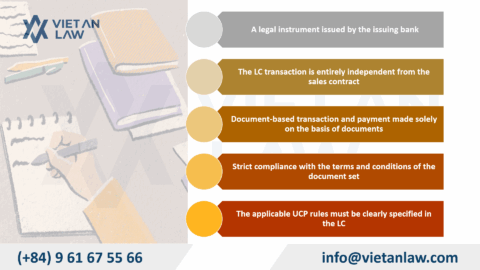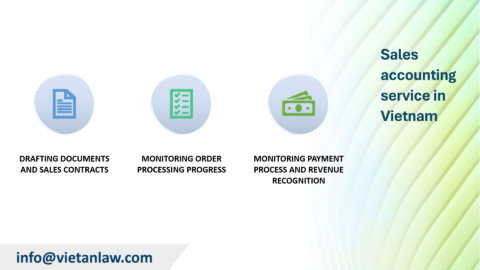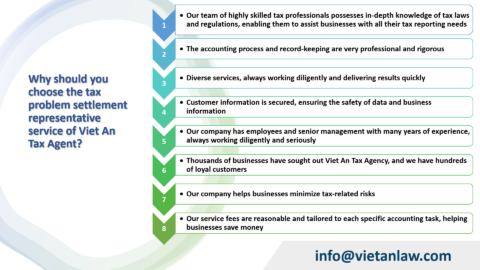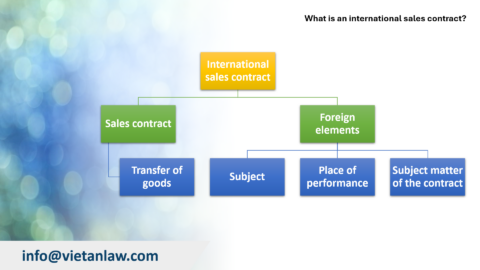Nowadays, the use of company seals in signing contracts is no longer a strange concept. Company seal is usually stamped when the legal representative signs a contract on behalf of the company and is widely used in the operations of many businesses. However, not all contracts signed by legal representatives have the legal entity’s stamp. So what is the validity of contracts that do not have a legal stamp according to the law? In the following article, Viet An Law will summarize the regulations on the contract validity without the seal of company in Vietnam.
A company seal, also known as a business seal, is considered a useful tool used by businesses to conduct transactions with partners and confirm documents, documents, and contracts to create value. legality of those documents.
According to the provisions of Article 43 of the Enterprise Law 2020, regulations on enterprise seals are understood as:
Besides the Civil Code, most company contracts are governed by the Commercial Law. Accordingly, the Commercial Law 2005 does not have any specific regulations on the validity conditions of service contracts. However, commercial contracts in particular, and civil contracts in general are essentially civil transactions.
Therefore, when considering the legal value of a contract, it is still necessary to rely on the general validity conditions of a civil transaction specified in Article 117 of the Civil Code 2015. Thus, to be valid, it must be valid. The contract must meet the following conditions:
Recognize digital signatures as equivalent to the enterprise’s seal
This regulation is a completely new content of the Enterprise Law 2020 to increasingly fit the economic development trend as well as be more convenient in business activities.
The digital signature can be simply understood as a form of electronic signature that encodes data and information of a business and is used to replace signatures on various types of documents and digital documents performed in electronic transactions.
Enterprises have the right to make their own decisions regarding their seals
According to the provisions of Clause 2, Article 43 of the Law on Enterprises 2020, enterprises decide the type of seal, quantity, form, and content of the enterprise’s seal. It can be seen that the Enterprise Law 2020 is creating conditions for businesses to own their own seal.
No need to inform the seal sample before use
Clause 2, Article 44 of the Enterprise Law 2014 stipulates that, before use, enterprises are obliged to notify the seal sample to the business registration agency for public posting on the National Business Registration Portal.
However, this regulation has been removed in the Enterprise Law 2020, simplifying administrative procedures for businesses.
Management, storage, and use of company seal
The management, use, and storage of seals is carried out in accordance with the provisions of the Company Charter as stipulated in Clause 3, Article 44 of the Enterprise Law 2014. This has been supplemented with additional grounds for implementation in the Enterprise Law 2020.
Accordingly, the management and storage of seals is also carried out according to regulations issued by the enterprise, branch, representative office, or other unit of the enterprise with the seal.
In addition, the new regulations also limit the use of corporate seals. The two parties in the transaction will not be allowed to agree on the use of the seal, but may only use the seal in transactions according to the provisions of law.
Currently, the law does not stipulate that all company contracts must be stamped with the company seal when signed but only requires that businesses use the seal in transactions in accordance with the law. Therefore, it can be understood that if specialized laws do not have mandatory regulations as well as if the company charter does not have regulations requiring legal entity stamps in contracts, it is possible to enter into contracts without a company seal of the legal representative remains legally valid.
In addition, according to the provisions of Clause 1, Article 43 of the Law on Enterprises 2020, it is possible to replace the enterprise seal with an electronic signature, recognize the enterprise’s electronic signature, and regulate signature scanning and inclusion in the contract. This regulation is consistent with the general trend of the world and the needs of businesses. The flexibility between company seals and electronic signatures has helped businesses avoid risks and inadequacies in the process of signing contracts. same as:
The liability of legal entities is specified in Clause 1 Article 87 of the Civil Code 2015 as follows:
Therefore, in case the legal representative of the enterprise signs contracts and transactions on behalf of the company and in accordance with the scope of representation specified in the company’s charter to serve the operations of the company, when there is a dispute, the company is the subject responsible for the rights and obligations for which the contract is established and vice versa if the legal representative exercises rights and obligations beyond the scope of representation, they have to take responsibility themselves.
In case a legal entity is responsible, the legal entity will be responsible with its assets; and shall not be responsible on behalf of a person of a legal entity for civil obligations established or performed by a person of a legal entity not on behalf of the legal entity, unless otherwise prescribed by law.
Customers need advice or learn more about the contract validity without the seal of company in Vietnam or the determination of responsibility when there is a dispute with contracts without a legal entity seal in particular or other civil transactions in general, please contact Viet An Law Firm for the best support.




